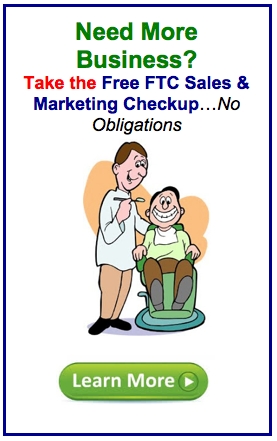Is SEO Still the Key to Ranking High in the Search Engines?
Warning: Use of undefined constant user_level - assumed 'user_level' (this will throw an Error in a future version of PHP) in /home/zzgspc5zic0z/domains/findthecapital.com/html/wp-content/plugins/ultimate-google-analytics/ultimate_ga.php on line 524
Article by, Carl Weiss of Site Pro News
Search engine optimization, otherwise known as SEO, has been bandied about since the inception of the internet as if it were the holy grail of online success. But what is SEO really? More importantly, what has it become? Is it simply a matter of optimizing your website? Or, has it grown to include a number of other parameters? My answer to these questions may surprise you. SEO is no longer just one thing. It has grown to mean so much more.
In this article I will discuss how search engine optimization has evolved in order to become Search Engine Marketing (aka S.E.M.). I will also provide you with information that will show you how you can improve your search ranking. This includes techniques designed to insure a strong ranking position. Best of all, you can accomplish all this without resorting to tricks, gimmicks or deception that attempts to hoodwink the search engine spiders.
Stop Acting Like it’s 1999
Before the turn of the century, achieving search ranking was relatively simple. You selected a keyword relevant to your business, created a website and added the desired keywords to your content. You made sure you included the keywords in Meta and Alt tags. Then you posted your web pages to the top 100 search engines and directories. Voila! If you chose your keywords carefully, you soon showed up on page one of Yahoo, AltaVista, Net Taxi and other search engines.
Today it isn’t so simple. The major search engines such as Google, Yahoo and Bing are mostly concerned with quality content, delivered on a timely basis. Google has even admitted that it no longer even gives Meta Tags a second glance. This content needs to be diversified (web pages, blogs, social media, videos etc…) and it needs to be highly relevant to the keyword or phrases that are searched. Today if you meet these criteria you will do well in organic search, (assuming your competition is not better at it than you). If you ignore these items then your chances of showing up on page one are slim at best.
Is On-Site Optimization Dead?
I am often asked is web page optimization still important? My answer is yes. Google and all other search engines still prowl websites as part of their ranking algorithm. Today, on-site optimization only accounts for about 25% of the overall score. However, it is still very important. If this on-page information is incorrect, missing, or doesn’t match the content, search engines will either ignore or misinterpret your content and rank you low or not at all. Either way it means bad news for your website. Make sure your on-page information is formatted to match the content and desired keywords. Otherwise your quest to be on page one will end before it begins.
Is SEM Different than SEO?
Search Engine Marketing is much more comprehensive than Search Engine Optimization. It includes all your websites plus your blog posts, social network posts, any PR posts, all pod casts and video posts. In essence, S.E.M. encompasses all web postings of any kind. Yet it also means more than this. S.E.M. is also a methodology designed to meet the search content requirements that provide high ranking. In other words, your success or failure is predicated on doing what the search engines want, not trying to trick them into giving you better ranking. When trying to rank highly on Google, this point is even more critical.
What Does Google Want?
Google loves mixed media, which includes video, photos, podcasts, and more. The reason they do this is due to the fact that Google is looking to determine who is serving the public the best content for any specific search. The googlebots evaluate your content for relevancy, usefulness, quality, consistency, timeliness, connectedness, positive feedback and diversity of format (web pages, blogs, social media, videos etc…). These are some busy bots.
Game the System at Your Own Peril
Gone are the days when you could easily trick the search engines in order to get a high ranking. Google has employed a multi-tier approach to detect most chicanery. Their new algorithms penalize such practices as keyword stuffing, duplicate sites, backlink farms and many other patently deceptive practices. On top of that they have hired a hoard of website evaluators that physically check out your pages, posts and back links. If Google catches you cheating they will downgrade your ranking or remove you from search altogether. Cheating Google no long means just a slap on the wrist. It can mean banishment!
How Can Content Marketing Help You Gain the High Ground?
A decade ago posting a properly optimized websites was all it took to achieve ranking. Today’s internet audience is far more savvy and sophisticated. Today’s websurfers prefer video and photos to text, provided they can find it. If you have a video on page one above the fold, it has a high probability of being viewed and acted upon. We know that statistically, videos will receive 80% of all clicks if they are highly visible. However, videos are not the be all end all of search results. Blog posts can also garner strong position in Google rankings. The same is true for social media posts that that have a high sharing factor (gone viral). Google also loves web pages that receive lots of positive ratings (especially Google Local or Map pages with Google +1 ratings and four or more stars.
The bottom line is that while SEO is not dead, it has changed so radically in the past few years that the rules of the game have changed. If you want to win, you need to adjust your approach and start creating compelling content that both the search engine bots and the public want to view.







